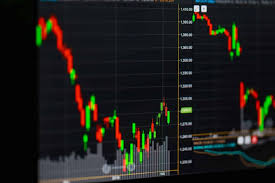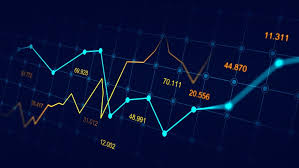
Welcome to the world of online forex trading! As the largest and most liquid financial market globally, the foreign exchange market offers traders unique opportunities to profit from currency fluctuations. This article aims to provide you with a comprehensive understanding of online forex trading, essential strategies, common pitfalls to avoid, and the tools you need to succeed. For those looking for a tailored experience, consider exploring an trading online forex Islamic Trading Platform that complies with your trading beliefs.
Understanding the Forex Market
The forex market operates 24 hours a day, five days a week, making it unique compared to other financial markets. Currencies are traded in pairs, indicating the value of one currency relative to another. For instance, in the EUR/USD pair, the euro is the base currency, and the US dollar is the quote currency. The price of the pair indicates how much USD is needed to purchase one euro.
Traders use various tools and analyses to predict market movements and make informed decisions. There are two primary types of analysis in forex trading: fundamental analysis, which involves assessing economic indicators and news events, and technical analysis, which utilizes historical price data and chart patterns to forecast future price movements.
Essential Forex Trading Strategies
A successful trading strategy is crucial in the forex market. Here are some popular strategies used by traders:
- Scalping: This is a high-frequency trading strategy that involves making small profits from minute price changes. Scalpers execute numerous trades throughout the day, capitalizing on minor fluctuations.
- Day Trading: Day traders open and close positions within the same trading day, avoiding overnight risks. They often rely on technical analysis to identify short-term trading opportunities.
- Swing Trading: This medium-term trading strategy involves holding positions for several days or weeks to capitalize on expected price movements. Swing traders analyze both technical and fundamental factors.
- Position Trading: This long-term strategy revolves around holding positions for extended periods, often based on fundamental analysis. Position traders look for significant trends and economic shifts.

Managing Risk in Forex Trading
Risk management is an essential aspect of forex trading. Protecting your capital should be a top priority. Here are some effective risk management strategies:
- Set Stop-Loss Orders: A stop-loss order automatically closes your position when the market moves against you by a set amount. This helps limit potential losses.
- Use Proper Position Sizing: Determine the appropriate size of a trade based on your account balance and risk tolerance. Avoid risking more than 1-2% of your trading capital on a single trade.
- Diversify Your Trades: Avoid putting all your capital into one currency pair. Diversification can help spread risk across different assets.
- Keep Emotions in Check: Emotional trading can lead to impulsive decisions. Stick to your trading plan and remain disciplined, even in the face of unexpected market movements.
Tools for Online Forex Trading
There are several tools available to assist traders in making informed decisions in the forex market:
- Trading Platforms: Most traders use trading platforms such as MetaTrader 4 (MT4), MetaTrader 5 (MT5), or more advanced broker offerings. These platforms provide charting tools, technical indicators, and trade execution capabilities.
- Economic Calendars: Stay updated on economic events that can impact currency prices. Economic calendars list scheduled reports like employment figures, interest rate announcements, and GDP growth.
- Technical Indicators: Utilize indicators such as moving averages, Bollinger Bands, and Fibonacci retracements to analyze price trends and potential reversal points.
- News Feeds: Access real-time news feeds to stay informed about market moves and economic developments. Knowledge of global events can impact trading decisions significantly.
The Importance of Education in Forex Trading
Continuous learning is vital to succeed in online forex trading. The market evolves rapidly, and traders must adapt to new trends and strategies. Here’s how to enhance your trading education:
- Online Courses: Numerous websites offer comprehensive forex trading courses designed for all levels of traders. These courses often cover everything from basic concepts to advanced trading strategies.
- Webinars and Seminars: Attend live webinars or seminars hosted by experienced traders and financial experts. These sessions can provide valuable insights and real-time trading examples.
- Practice with Demo Accounts: Most brokers provide demo accounts that allow you to practice trading with virtual funds. This is a great way to build confidence and test strategies without risking real money.
- Join Trading Communities: Participate in online trading forums, social media groups, or local trading clubs. Engaging with a community of traders can provide support, tips, and motivation.
Common Pitfalls to Avoid in Forex Trading
As a forex trader, being aware of common mistakes can save you from significant losses. Here are a few pitfalls to avoid:
- Overleveraging: While leverage can amplify profits, it also increases the risk of significant losses. Use leverage responsibly and understand its implications on your trading account.
- Following the Herd: Avoid making trading decisions based solely on popular opinion or market sentiment. Conduct your own analysis and develop a consistent trading strategy.
- Neglecting Analysis: Failing to analyze the market properly can lead to poor trading decisions. Always base your trades on thorough analyses rather than emotions or rumors.
- Ignoring Trading Plans: Successful traders create and stick to a trading plan. Deviating from your plan can lead to emotional decisions and increased risk.
Conclusion
Online forex trading offers unique opportunities for those willing to invest time and effort into learning the market. With a deep understanding of trading strategies, risk management techniques, and the right tools, you can enhance your trading experience. Remember that trading is not just about making money; it’s also about maintaining discipline, building knowledge, and managing risk. Continuously educate yourself, stay connected with the trading community, and adapt to the markets’ ever-changing nature. By following these guidelines, you will be better prepared to navigate the exciting world of forex trading.
